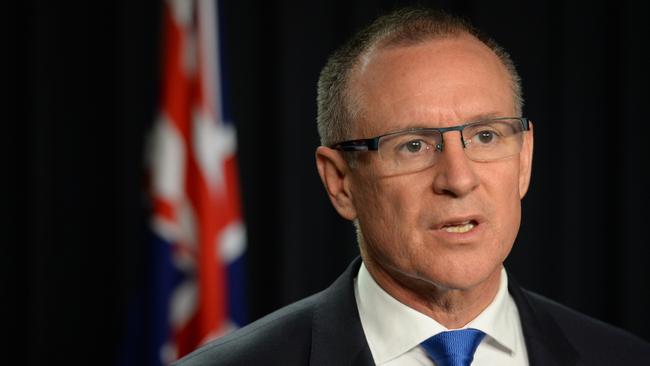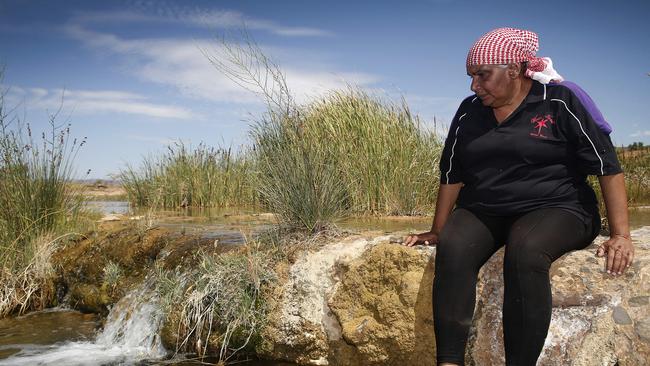Daniel Wills: Once the gabfests of two citizens’ juries is over, a tough political call remains on storing high-level nuclear waste in SA
ANALYSIS: Voters consistently call for bold political leadership — but revolt when blindsided with big and difficult decisions. Daniel Wills examines the politics behind Jay Weatherill’s nuclear dump citizens’ jury.
Opinion
Don't miss out on the headlines from Opinion. Followed categories will be added to My News.
- Citizens’ jury to guide nuclear waste dump decision
- Royal Commission finds nuclear storage would reap a fortune for SA
- But don’t hold your breath waiting for nuclear power in SA
- Flinders Ranges indigenous leaders prepared to fight against waste dump
VOTERS consistently call for bold political leadership, but revolt when blindsided with big and difficult decisions. By convening a citizens’ jury to determine future policy on a nuclear waste dump, Labor is trying to both test and cajole public opinion.
The 2014 Federal Budget will go down as a modern political case study in failed leadership.
After campaigning on a platform of closing the national deficit, the Coalition took “bold” decisions to cut back on welfare and social spending while also upping taxes for top earners and the cost of going to the doctor, in a push to find a fast fix for a fiscal “emergency”.
Politically, it was a complete disaster. Former prime minister Tony Abbott and his treasurer Joe Hockey seared into the national psyche a sense that they were out-of-touch promise-breakers.
For both men, the night of their first Budget was the beginning of the end of their careers.
But the Budget also had a second major failure. It finished up fiscally impotent.
The outrage and shock of the country filtered up through the political process and found expression in the Senate. Labor, the Greens, independent Senator Nick Xenophon and other crossbenchers locked together to shoot down Coalition hopes of a short to medium term surplus.
The country has now put the problem of Budget repair in the too-hard basket, so badly burnt by a botched process it is refusing to return to tackle one of its most fundamental challenges.
When the politics are wrong, parliaments will step in to make sure policies don’t get through.
And they also have a habit of responding to the loudest and most engaged voices in the debate, who spend their time on Twitter and Facebook and Change.org, or use their money to set up formal lobby groups.

The flip side of strong action being undermined by awful politics was former prime minister Kevin Rudd’s dumping of plans for a carbon emissions trading scheme. Spooked by a couple of polls, he abandoned a key principle and was written off as someone who blows about in the breeze.
The SA Royal Commission recommendation for the state to pursue a high-level international nuclear waste storage facility is almost the biggest test a democracy can imagine.
It will have irreversible impacts that will last for as long as people live on this patch of dirt.
The waste will have to be stored for 100,000 years. The pyramids are just 4500 years old. White settlement came to SA only 180 years ago. Countless generations will deal with the fallout.
But the potential benefits outlined by the Royal Commission are also huge. The early estimates are that nuclear storage offers the state a kind of wealth that can hardly be imagined.
And it’s a unique kind of proposal that simply won’t work if there isn’t general support.
The entire business model collapses if SA chooses nuclear storage, but screws up the politics.
Laws won’t be changed and nuclear-powered nations won’t agree to start shipping.
This was the experience of the late 1990s when international conglomerate Pangea started skulking around in the WA desert, hunting for a place to bury the world’s nuclear waste.
A promotional video was leaked by environmental activists and presented to the country as something likely to be imposed from outside. Understandably, Australia kicked back.
South Australia’s two previous citizens’ juries have been strange exercises, set up to examine things which could easily be handled by the people we send to Parliament. Cycling laws and liquor licensing are pretty small fish that have been often altered and evolve over time.
They were reasonably written off as feel-good exercises by and for the political class.
By using twin citizens’ juries on nuclear waste, Labor is trying to measure and shape opinion.
A cross-section of the state will be locked in a room and flooded with facts and figures about what the Royal Commission found, asked to take time to form a considered view.
The broad view at senior levels of the State Government is that storage is something which is safe and worth the slight risks involved. Many feel ignorance and fear are the only impediments.
They expect support for storage will grow as more light is shone on the proposal.
The citizens’ jury will be like a focus group that works out what people are worried about and will help Labor to pivot early. It will gain early insight into all potential political flashpoints.
If the jury supports storage, Labor will also get a shield for a decision due later this year.
The Government could then argue that the people chose a path, and it is acting on those wishes.
The “citizens’ jury” is a political device for finding a happy medium between showing leadership on an extremely controversial issue, and avoiding the backlash that comes from a shock decision.
And for all the gab that’s going to occur over the next seven months, that point remains.
Ultimately, a political decision will have to be made, with all the credit and criticism it deserves.



